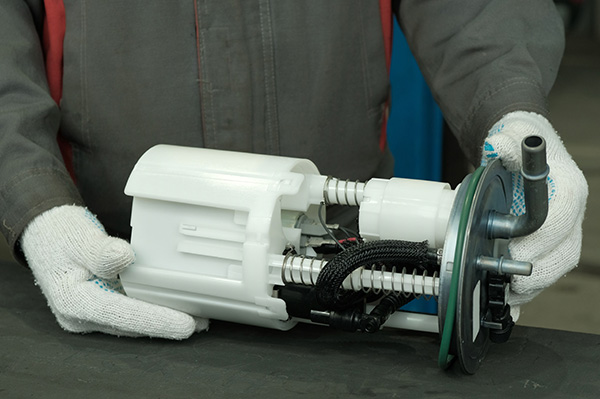
Your car’s fuel pump keeps your engine running by delivering the right amount of fuel at the right pressure. When the fuel pump fails, your car’s performance suffers, and you might even find yourself stranded. Curious about what causes fuel pump damage and how you can avoid it? Let’s explore the main culprits and some practical tips to keep your fuel system in top shape.
1. Running on Low Fuel Too Often
One of the most common reasons for fuel pump damage is consistently driving with a near-empty gas tank. The fuel in your tank acts as a coolant for the pump. When the fuel level gets too low, the pump isn’t properly cooled, causing it to overheat and wear out prematurely.
Prevent this by keeping your gas tank at least a quarter full at all times. This will not only extend the life of your fuel pump but also reduce the risk of debris collecting at the bottom of the tank, which can clog the pump and fuel filter.
2. Using Contaminated or Poor-Quality Fuel
Dirty or substandard fuel can wreak havoc on your fuel pump. Contaminants in the fuel can clog the pump and the injectors, leading to reduced efficiency and potential failure. Water in the fuel is another issue that can cause corrosion inside the pump.
To avoid these problems, always fill up at reputable gas stations. If you suspect fuel contamination, a professional can inspect and clean the system to prevent further damage.
3. Ignoring Regular Maintenance
Skipping routine maintenance is another reason fuel pumps fail. Over time, the fuel filter can become clogged with debris, forcing the pump to work harder. This extra strain can reduce the pump’s lifespan significantly.
Regular maintenance, including timely fuel filter replacements, is key to keeping the fuel system running efficiently. Most manufacturers recommend replacing the fuel filter every 30,000 to 60,000 miles but check your owner’s manual for specific guidelines.
4. Electrical Issues
The fuel pump relies on a proper electrical supply to function. Faulty wiring, corroded connectors, or a failing relay can disrupt the power supply, leading to pump failure. Electrical issues often go unnoticed until the pump stops working altogether.
Preventive care involves having your car inspected by a trusted repair shop if you notice signs of electrical problems, such as difficulty starting the engine or inconsistent fuel delivery.
5. Overheating Due to Prolonged Strain
Excessive strain on the fuel pump, whether from clogged filters, poor-quality fuel, or low tank levels, can lead to overheating. This shortens the pump’s lifespan and may cause sudden breakdowns.
Being proactive with maintenance and avoiding situations that overwork the pump—like towing heavy loads with an underpowered vehicle—can go a long way in preventing damage.
How to Recognize Early Signs of Fuel Pump Trouble
Before the fuel pump gives out completely, your car often exhibits warning signs. These may include difficulty starting, loss of power when accelerating, or unusual noises from the gas tank area. Addressing these symptoms early can save you from costly repairs and keep your car on the road.
If you’re in Parker, CO, and suspect fuel pump issues, or simply want to ensure your fuel system is in top condition, it’s a good idea to schedule a professional inspection. Regular maintenance is the best way to catch problems early and avoid expensive repairs later on.
Protect your fuel pump and ensure peak performance with top-quality service from Extreme Auto Repair in Parker, CO. Contact us now to book your next maintenance visit!